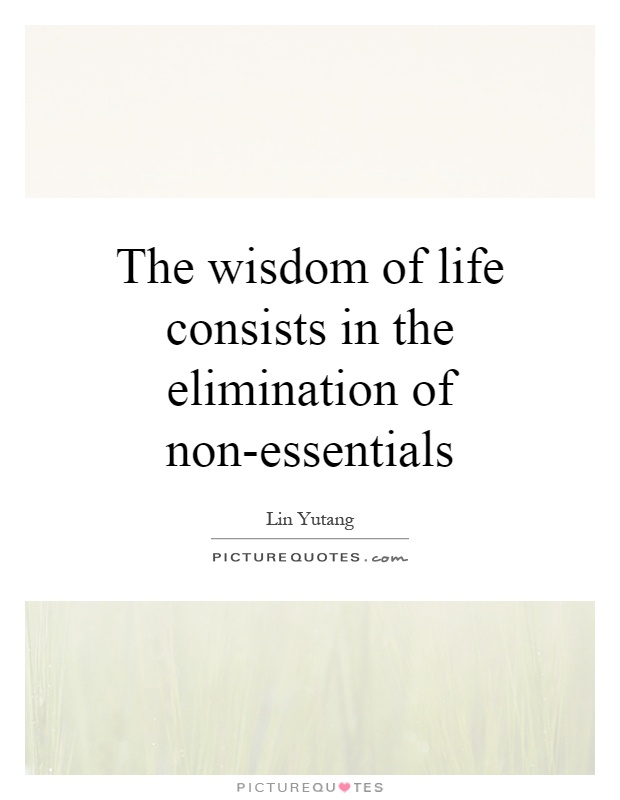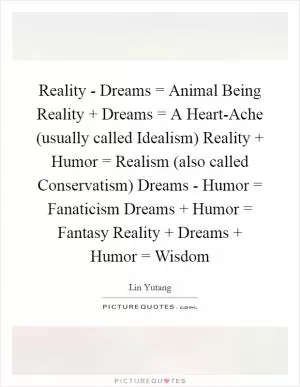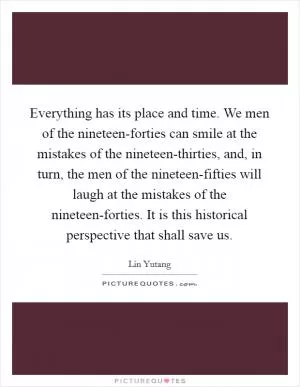The wisdom of life consists in the elimination of non-essentials

The wisdom of life consists in the elimination of non-essentials
Lin Yutang, a renowned Chinese writer and philosopher, believed that the wisdom of life consists in the elimination of non-essentials. This concept is deeply rooted in the philosophy of simplicity and minimalism, which emphasizes the importance of focusing on what truly matters and letting go of unnecessary distractions and clutter.In today's fast-paced and consumer-driven society, it is easy to get caught up in the pursuit of material possessions, social status, and external validation. We often find ourselves overwhelmed by the demands of work, relationships, and societal expectations, leading to stress, anxiety, and a sense of emptiness. Lin Yutang's philosophy reminds us to take a step back and reevaluate our priorities, to discern between what is essential and what is superfluous in our lives.
By eliminating non-essentials, we can create space for what truly brings us joy, fulfillment, and meaning. This may involve decluttering our physical environment, simplifying our daily routines, and letting go of toxic relationships or negative thought patterns. It also requires introspection and self-awareness to identify our core values, passions, and goals, and align our actions with them.
In his book "The Importance of Living," Lin Yutang explores the art of living a balanced and harmonious life by embracing simplicity, spontaneity, and authenticity. He emphasizes the value of solitude, contemplation, and self-reflection as essential practices for cultivating inner peace and wisdom. By letting go of external distractions and societal pressures, we can connect with our true selves, tap into our creativity and intuition, and live in alignment with our values and beliefs.
The elimination of non-essentials is not about deprivation or asceticism, but rather about creating a sense of freedom, clarity, and purpose. It is about focusing on quality over quantity, depth over superficiality, and inner richness over external appearances. By simplifying our lives and letting go of what no longer serves us, we can cultivate a sense of contentment, gratitude, and fulfillment that transcends material possessions and societal expectations.












 Friendship Quotes
Friendship Quotes Love Quotes
Love Quotes Life Quotes
Life Quotes Funny Quotes
Funny Quotes Motivational Quotes
Motivational Quotes Inspirational Quotes
Inspirational Quotes